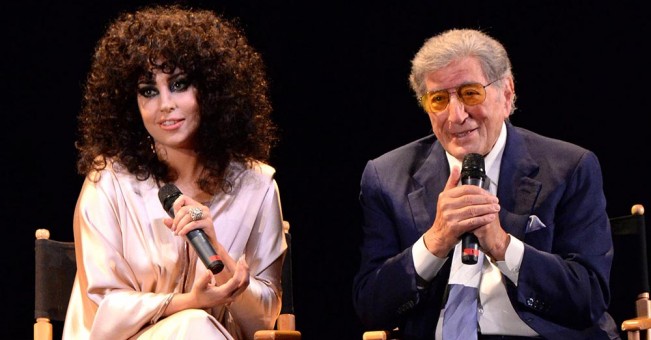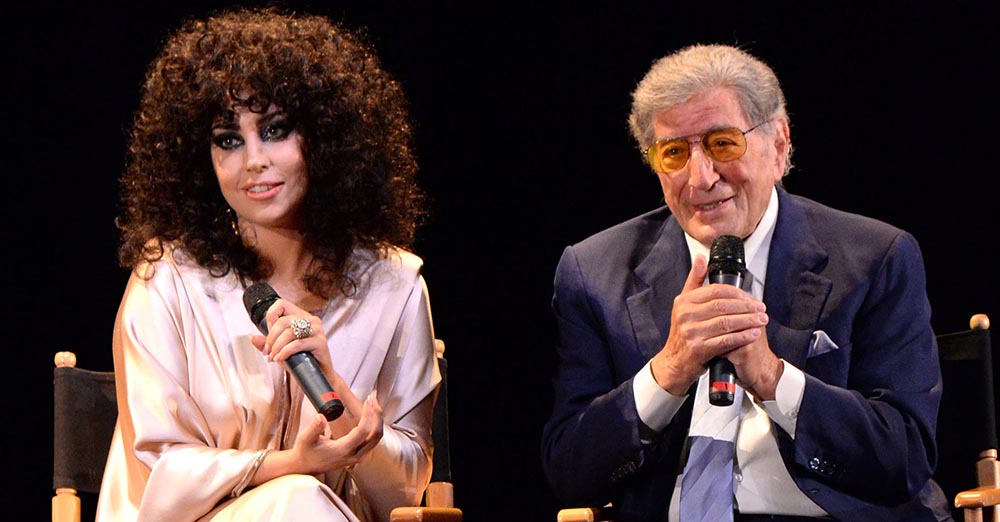
By Mark Ambrogi
At 88, Tony Bennett recently became the oldest performer to reach No. 1 on the Billboard 200 with his album with Lady Gaga. Bennett broke his previous age record of 85 when “Duets II” made No. 1 in 2011.
“I don’t view it as reinventing myself as I am singing the songs that I have made the cornerstone of my recording career, but what thrills me about working with these younger artists is it exposes their audience to the Great American Songbook so that this music continues to be explored and discovered,” Bennett said. “Particularly with my new album with Lady Gaga — as she is a fantastic jazz singer — so I know that all her millions of fans will now listen to how great she sounds and start appreciating jazz music and popular standards.”
Bennett will perform at the Palladium in Carmel at 8 p.m. on Nov. 21 with his daughter Antonia. Bennett answered some questions from Current about his legendary career.

Thirty years ago, did you think you would still be doing live shows today and how have you kept so active?
Performing in front of a live audience has always been the biggest thrill for me because it’s spontaneous and it’s the most direct communication you can have as a musical performer. So I think the fact that I have always been touring throughout my career has been a key part to my longevity. It’s a bit easier now with one show a night than when I started out at the Paramount Theatre and we did seven shows a day, but I still love it. I like to make people happy and I hope when they leave the theater they have forgotten some of their own problems and have just enjoyed themselves.
You’ve performed with the greatest of the greats, which one stands out the most for you?
That is very tough as I toured for two years with Lena Horne, but I have to say singing and knowing Judy Garland has been a treasured part of my career. She was a complete original and an authentic artist of the highest measure and a dear friend.
You’ve said you never sing “I Left my Heart in San Francisco” the same way. How hard is to keep challenging yourself that way?
As an entertainer, it is my responsibility to ensure that the audience enjoys themselves, so I want to perform the songs that I know the audience has come to hear me sing so it’s not hard at all. I tour with a magnificent jazz quartet and I have always gravitated to performing with jazz artists because they are master musicians which enables them to be spontaneous. We can decide to change the tempo of a song 10 seconds before we perform it on stage, depending on the pacing of the show and if we need to do an up-tempo or move to a ballad. So every show is different from one night to another because every audience is different and they are as much a part of the performance as we are.
Which Great American Songbook performer do you most admire and why?
I really admire them all because they are keeping the finest popular music ever written alive by choosing to perform and record these songs.
There was a golden age of songwriting in America in the ‘20s, ‘30s and ‘40s when you had (George) Gershwin, Duke Ellington, Jerome Kern, Irving Berlin, just a once-in-a-lifetime moment when these master craftsmen were writing songs. And I believe these songs will ultimately become America’s classical music.
Do you have a most memorable live performance that truly stood out, and if so, why?
I do, as it was a truly remarkable thing as I was on stage of the Hollywood Bowl and was singing the Kurt Weill song, “Lost in the Stars,” and during the song the entire audience gasped right in the middle of the performance. I kept going but when I got off stage I asked the stage manager why did the audience gasp all at once and he said that while I was singing the song a shooting star went right over the Bowl. The next morning my phone rings and it’s Ray Charles calling from New York — he had heard the story already — and the first thing he says to me is, “Tony, how did you do that?”
How much has the recording industry changed with what some would term the overproducing of music in the studio and its contrast with live music?
For me, it hasn’t changed at all as I still record the same way that I did when I started out — with live musicians in the room with me and, in fact, it was a new experience for many of the younger artists who joined me on the “Duets” albums to record that many of them told me that they wanted to make their albums that way from now on. So much of what makes art communicate is the vitality of it, the things that keep it spontaneous and unexpected, so I like to record in a situation that keeps things as much like a live performance as possible. Art has to be real and it has to be honest — it doesn’t necessarily have to be perfect as that can take the soul out of it.
How much does having your son Danny managing and your daughter performing with you motivate you to keep making so many shows a year?
Actually, my whole family is involved with my career as my other son, Dae, is the producer and recording engineer of my albums and my granddaughter Kelsey has done photography for the projects. It’s absolutely wonderful to have my family around me and participating and I love that fact that they are all creative and involved in the arts. My daughter Johanna, recently founded a film festival, FIRST TIME FESTIVAL, to support and showcase films by directors who are just starting out with their first film.



